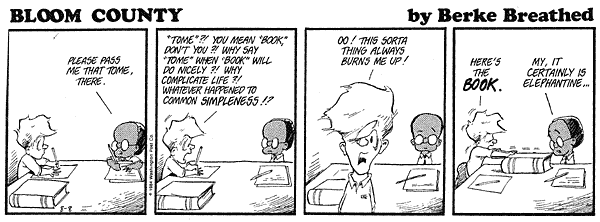"The Heroics of Luke and Han"
happy birthday
glenniebun!!!
"The Rebels At Bay"I ordered a copy of the original double LP of The Empire Strikes Back after reading a thread about it on the Film Score Monthly Message Board. The score was significantly expanded for the Arista 4 CD set and is available complete in the RCA/Sony "Special Edition" versions (albeit with terrible sound on those complete releases), but the the original album assembly had some different takes and was edited for the two-platter presentation.
Of course, I feel it important to stress that I'm talking about the 75 minute double LP version, not the 42 minute single LP edition issued in Europe which was ported over to the CD release by PolyGram (switching sides one and two in the process, thus having the end title and main title in the middle of the disc). As I was "upgrading" to this edition from the tape cassette (which had the original program material intact), Empire was one of the biggest disappointments for me in the early days of the CD medium.
I am usually not a big fan of how John Williams mixes up his scores for their album releases, tending to find that the linear lietmotif style of his Romantic-style film scores work better in their complete and chronological form (although I do enjoy his re-recordings, and in the case of E.T., more than I do the original score tracks). And I am very happy to have a lot of the music from Empire that isn't on the original 2 LP set. This is, after all, a very entertaining as well as culturally prominent film score.

But The Empire Strikes Back is an exception for me. Williams' original album assembly of this score is brilliantly done, offering a very concise representation of the score, and a damn good listening experience in its own right. Each of the four sides has its own identity with a definite beginnings and endings that nevertheless fit into a unified whole. The suites Williams created for the album are very exciting and make total musical sense, even though their component parts are from very different parts of the movie.
It is interesting in this day and age that a film music discography can now have so many alternate versions of the same score, with each alternative having its own merits. In addition to the variant versions of the original soundtrack recording, the Charles Gerhardt recording of The Empire Strikes Back is also a different, very worthwhile take on this score with some unique properties. I liken it to how enthusiasts of concert hall music will often have several different recordings of their favorite works.
While the sound quality on the LP doesn't offer much over the Arista 4 CD set (but is nevertheless much, much better than the "Special Edition" complete score releases), aside from the lackluster cover, the gatefold jacket is quite arresting. The back cover is the Roger Kastel Gone With the Wind-style painting, and the booklet on the inside (which I was unaware existed) is quite attractive.
"You have two films. Take one away, it doesn't work."My brother and I watched The Seven Samurai on Kung Fu HD yesterday. Between that experience, working with the Sergio Leone Westerns in preparation for the creation of my Ennio Morricone compilation The Vice of Killing and seeing The Godfather anew on Blu-ray, I have been thinking a lot about how long movies today are different from long movies of the past. If you look at any of those examples, you'll find that part of what makes those films long is how they are not afraid to linger on a sequence for dramatic weight. An example from each:
- The Seven Samurai
Rikichi's wife (Yukiko Shimazaki) realizing that the hell she has been living for the past few months is about to end. - The Good, the Bad and the Ugly
Blondie's (Clint Eastwood) sharing his cigar with the dying soldier at the bridge. - The Godfather
The awkward silence as Solluzzo (Al Lettieri) and Michael (Al Pacino) size each other up as the waiter at Louis' pours the wine, and later Michael spacing out before he shoots Solluzzo and McClusky (Sterling Hayden).
This was something that came up in a roundabout way during the shoot. There were a few times when I lingered a bit on a silent shot with the intention of allowing it to be a moment where the character's feelings would be conveyed through the actor's performance and the music. My cinematographer was wondering why such a shot would be so long. Of course, the shot as it appears in the final edit will probably not be as long as the take was, but it will be a relatively long shot in comparison to most of what you'd see in a contemporary film (particularly a short).
Maybe I'm just getting too old.
"The Last Score On Earth"Film Score Monthly has released a spruced up version of their release of Ron Grainer's score for The Omega Man. This was a release I missed out on the first time around, so I am quite glad to be getting this edition, with better sound to boot as well!*

* One should never use the term "boot" in the same sentence as "Film Score Monthly."